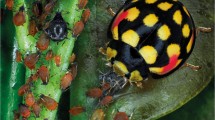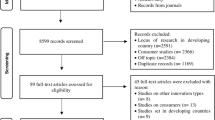Abstract
Computer simulation has become important in ecological modeling, but there have been few assessments on how complex simulation models differ from more traditional analytic models. In Part I of this paper, I review the challenges faced in complex ecological modeling and how models have been used to gain theoretical purchase for understanding natural systems. I compare the use of traditional analytic simulation models and point how that the two methods require different kinds of practical engagement. I examine a case study of three models from the insect resistance literature in transgenic crops to illustrate and explore differences in analytic and computer simulation models. I argue that analyzing simulation models has been often inappropriately managed with expectations derived from handling analytic models. In Part II, I look at simulation as a hermeneutic practice. I argue that simulation models are a practice or techné. I the explore five aspects of philosophical hermeneutics that may be useful in complex ecological simulation: (1) an openness to multiple perspectives allowing multiple levels of scientific pluralism, (2) the hermeneutic circle, a back and forth in active communication among both modelers and ecologists; (3) the recognition of human factors and the nature of human practices as such, including recognizing the role of judgments and choices in the modeling enterprise; (4) the importance of play in modeling; (5) the non-closed nature of hermeneutic engagement, continued dialogue, and recognizing the situatedness, incompleteness, and tentative nature of simulation models.
Similar content being viewed by others
Notes
This is not to say that the system represented by the simulation cannot be represented by other more detailed or insightful simulation. But the usefulness of the model is closely tied to it creator or those that maintain the model.
References
Allen TFH, Tainter JA, Pires JC, Hoekstra TW (2001) Dragnet ecology—“Just the Facts, Ma’am”: the privilege of science in a postmodern world. BioScience 51:475–485
Alstad DN, Andow DA (1995) Managing the evolution of insect resistance to transgenic plants. Science 268:1894–1896
Cartwright N (1999) The dappled world: a study of the boundaries of science. Cambridge University Press, Cambridge, UK
Cooper GJ (2003) The science of the struggle for existence: on the foundations of ecology. Cambridge University Press, Cambridge, UK
Crease RP (1993) The play of nature: experimentation and performance. Indiana University Press, Bloomington
Davey N (2006) Unquiet understanding: Gadamer’s philosophical hermeneutics. State University of New York Press, Albany
De Roos AM, Persson L (2005) Unstructured population models: do population-level assumptions yield general theory? In: Cuddington K, Beisner B (eds) Ecological paradigms lost: routes of theory change. Elsevier Academic Press, Burlington, MA, pp 31–62
De Ventura B, Lemerle C, Michalodimitrakis K, Serrano L (2006) From in vivo to in Silico biology and back. Nature 443:527–533
Gadamer H-G (1975) Truth and method. Continuum Publishing Group, New York
Galison P (1996) Computer simulations and the trading zone. In: Galison P, Stump DJ (eds) The disunity of science: boundaries, contexts, and power. Stanford University Press, Stanford, CA, pp 118–157
Godfrey-Smith P (2006) The strategy of model-based science. Biol Philos 21:725–740
Grimm V, Railsback SF (2005) Individual-based modeling and ecology. Princeton University Press, Princeton
Guala F (2002) Models, simulations, and experiments. In: Magnani L, Nersessian NJ (eds) Model-based reasoning: science, technology, values. Kluwer Academic/Plenum Publishers, New York, pp 59–74
Hall CAS (1988) An assessment of several of the historically most influential theoretical models used in ecology and the data provided in their support. Ecol Model 43:5–31
Harré R (2002) Science as the work of a community. In: Babich BE (ed) Hermeneutic philosophy of science, Van Gogh’s Eyes, and God: essays in honor of Patrick A. Heelan, S. J. Kluwer Academic Publishers, Dordrecht, The Netherlands
Humphreys P (2004) Extending ourselves: computational science, empiricism, and the scientific method. Oxford University Press, Oxford
Levins R (1966) The strategy of model building in population biology. Am Sci 54:421–431
Levins R (2006) Strategies of abstraction. Biol Philos 21:741–755
Li CC (1955) Population genetics. University of Chicago Press, Chicago
Odenbaugh J (2005) The “structure” of population ecology: philosophical reflections on unstructured and structured models. In: Cuddington K, Beisner B (eds) Ecological paradigms lost: routes of theory change. Elsevier Academic Press, Burlington, MA, pp 63–77
Odenbaugh J (2006a) Book review: struggling with the science of ecology. Biol Philos 21:395–409
Odenbaugh J (2006b) The strategy of “the strategy of model building in population biology”. Biol Philos 21:607–621
Orzack SH (2005) Discussion: what, if anything, is “the strategy of model building in population biology” a comment on Levens (1966) and Odenbaugh (2003). Philos Sci 72:479–485
Parker WS (2006) Understanding pluralism in climate modeling. Found Sci 11:349–368
Peck SL (2004) Simulation as experiment: a philosophical reassessment for biological modeling. Trends Ecol Evol 19:530–534
Peck SL, Gould F, Ellner SP (1999) Spread of resistance in spatially extended regions of transgenic cotton: implications for the management of Heliothis verescens (Lepidoptera: Noctuidae). Environ Entomol 92:1–16
Peters RH (1991) A critique for ecology. Cambridge University Press, Cambridge, UK
Shrader-Frechette KS, McCoy ED (1993) Method in ecology: strategies for conservation. Cambridge University Press, Cambridge, UK
Templeton AR (2007) Genetics and recent human evolution. Evolution 61:1507–1519
Toulmin S (2002) The hermeneutics of the natural sciences. In: Babich BE (ed) Hermeneutic philosophy of science, Van Gogh’s Eyes, and God: essays in honor of Patrick A. Heelan. S. J. Kluwer Academic Publishers, Dordrecht, The Netherlands, pp 219–229
Weisberg M (2006) Forty years of ‘the strategy’: Levins on model building and idealization. Biol Philos 21:623–645
Weisberg M (2007) Who is a modeler? Br J Philos Sci 58:207–233
Wimsatt WC (2000) Emergence as non-aggregativity and the biases of reductionism(s). Found Sci 5:269–297
Wimsatt WC (2007) False models as means to truer theories. Re-engineering philosophy for limited beings. Harvard University Press, pp 94–132
Winsberg E (1999) Sanctioning models: the epistemology of simulation. Sci Context 12:275–292
Winsberg E (2001) Simulations, models, and theories: complex physical systems and their representations. Philos Sci 68:S442–S454
Winsberg E (2003) Simulated experiments: methodology for a virtual world. Philos Sci 70:105–125
Acknowledgments
I would like to thank Jim Faulkner, David Grandy, Steven Hawks, Wendy Parker, Anya Plutynski, and an anonymous reviewer for invaluable critiques of this paper. This was funded in part by EPA-ARS Interagency Agreement 60-3625-4-0574, and ARS Specific Cooperative Agreement 58-3625-4-100.
Author information
Authors and Affiliations
Corresponding author
Rights and permissions
About this article
Cite this article
Peck, S.L. The hermeneutics of ecological simulation. Biol Philos 23, 383–402 (2008). https://doi.org/10.1007/s10539-008-9109-y
Received:
Accepted:
Published:
Issue Date:
DOI: https://doi.org/10.1007/s10539-008-9109-y




